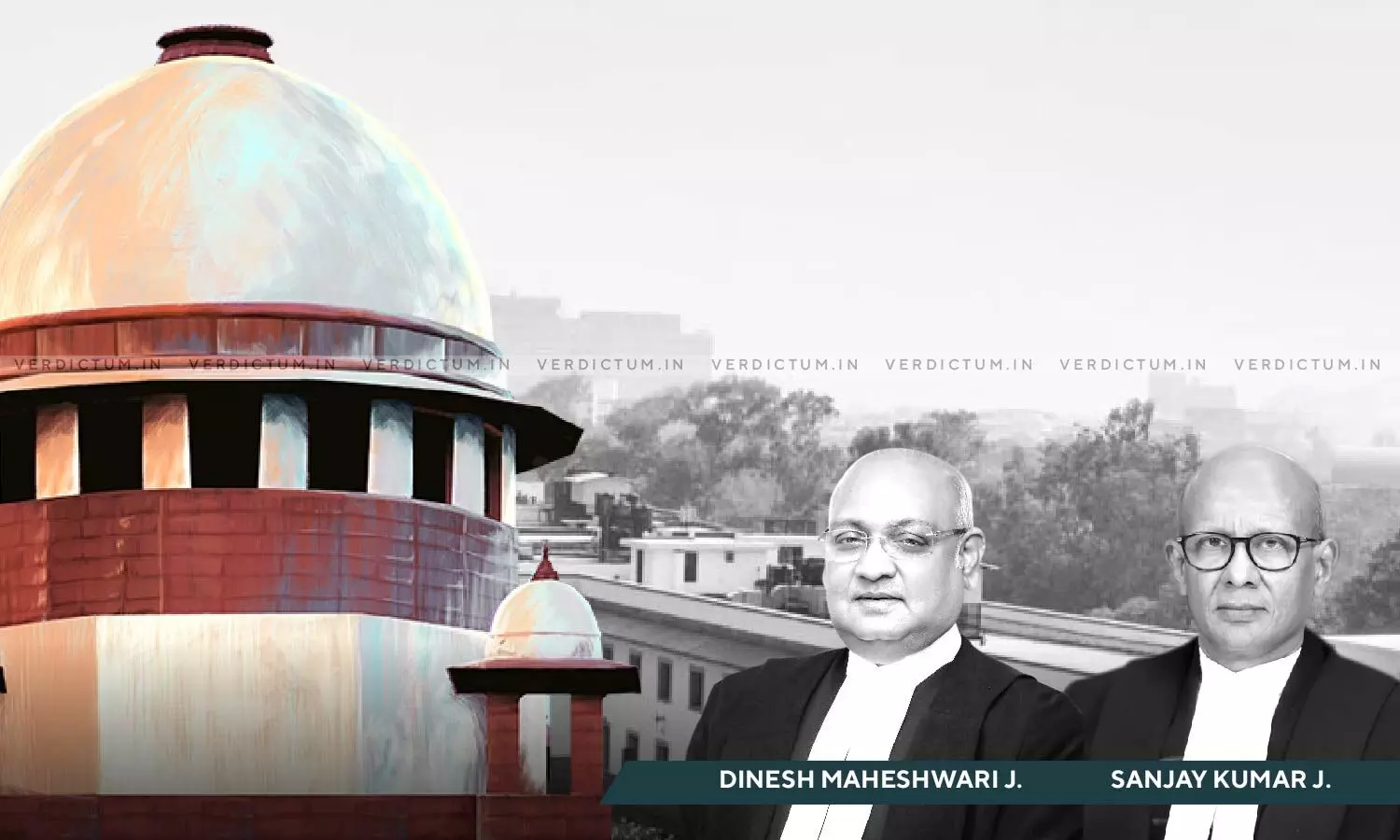
Meghalaya’s Suit Against Provisions Of Lotteries (Regulation) Act- SC Rejects Centre’s Challenge To Maintainability Of The Suit
 |
|The Supreme Court has observed that it is not inclined to accept the contentions urged by the Union of India and some of the States that the suit filed by the state of Meghalaya, challenging certain provisions of Lotteries (Regulation) Act, is not maintainable under Article 131 of the Constitution.
The Court held "...we are not inclined to accept the contentions urged by the Union of India and some of the States, including the State of Kerala, that this suit is not maintainable under Article 131 of the Constitution."
The Court added that "Given the wide ambit of the reliefs sought herein, the State of Meghalaya is entitled to take the case forward on merits, subject to what has been stated hereinbefore, with regard to the final relief to be granted in the context of validity of the impugned provisions of the Act of 1998"
The Two Judge Bench of Justice Dinesh Maheshwari and Justice Sanjay Kumar clarified that “even if final determination of the question of maintainability (in case the constitutional validity of the impugned provision is to be decided) may depend upon the decision of Larger Bench, the supplemental proceedings in the present suit, particularly those relating to the prayer of interim relief, cannot be put on hold”.
Advocate Avijit Mani Tripathi appeared for the Plaintiffs, whereas, Advocate Shibashish Misra appeared for the Defendants.
In a nutshell, the Plaintiff (State of Meghalaya) sought for a declaration that Sections 5, 6, 7, 8 and 9 of the Lotteries (Regulation) Act, 1998 and Rule 5 of the Lotteries (Regulation) Rules, 2010, are ultra vires and unconstitutional. In addition to the declaratory reliefs, the Plaintiff also sought for a perpetual injunction restraining the Defendants (Union of India) from issuing orders under Section 6 of the Act of 1998 in relation to the lotteries organized by it; a perpetual injunction restraining the Defendants from initiating or taking any penal action under Sections 7, 8 and 9, for violation of Sections 5 and 6 of the Act of 1998, in relation to the lotteries organized by it; and a perpetual injunction restraining the other Defendants (States and Union Territories) from prohibiting the sale of lottery tickets organized by it in their respective jurisdictions.
It was the contention of the Union of India and several of the impleaded States that this suit is not maintainable. It was,submitted that either the matter be referred to a Larger Bench or the decision of Larger Bench be awaited.
After considering the submissions, the Apex Court observed that though titled as a ‘suit’, a proceeding under Article 131 of the Constitution of India cannot be likened to a civil suit under the Code of Civil Procedure, 1908.
While explaining the scope of power under Article 145 of the Constitution, the Apex Court clarified that the premise that any ‘law’ could bar the original jurisdiction of this Court under Article 131, i.e., a suit as it appears from the statement in the plaint, is a misnomer as an enacted ‘law’, cannot possibly control the scope and ambit of a constitutional provision.
The Bench highlighted that Article 131 confers ‘original jurisdiction’ on this Court not only on the strength of the nature of the dispute but also the status of the party invoking the remedy, i.e., either the Union of India or a State, whereas the liberty to challenge the validity of Central laws or State laws under Article 226 or Article 32 would be available to all.
The Bench therefore elucidated that the State of Meghalaya is entitled to take the case forward on merits, regarding the final relief to be granted in the context of validity of the impugned provisions of the Act of 1998.
“As the State of Meghalaya seeks to assert its right to do business in lotteries under Article 298(b) and its executive power to do so would be subject to parliamentary legislation, viz., the Act of 1998, the grievances raised by it in that context would constitute disputes which fall squarely within the four corners of Article 131 of the Constitution”, added the Bench.
The Court observed "...at the present stage, we leave it open for the contesting defendants to file their reply in relation to the prayer for interim relief by the plaintiff-State, if so chosen, within four weeks from today"
Cause title: State of Meghalaya vs. Union of India and Ors.
Click here to read / download Order